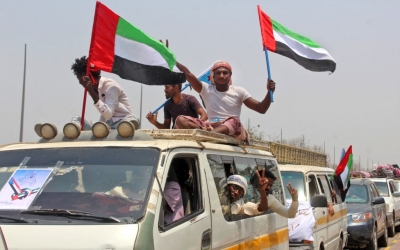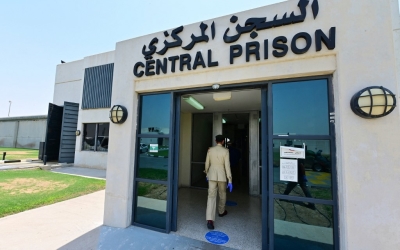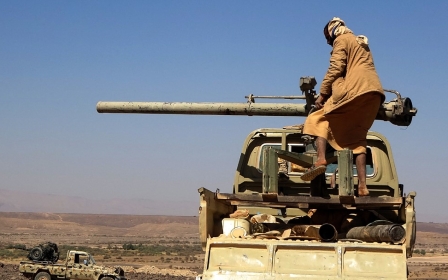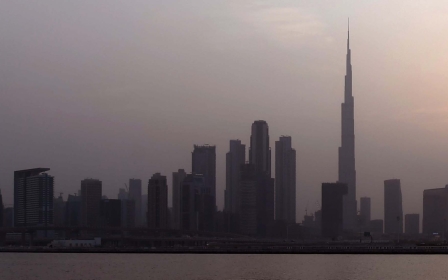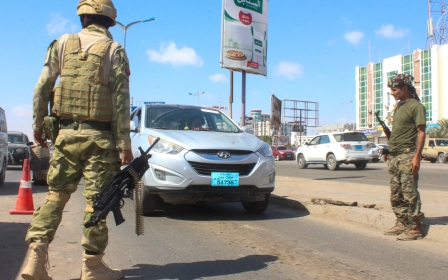UAE-backed STC forces accused of torturing Yemeni journalist
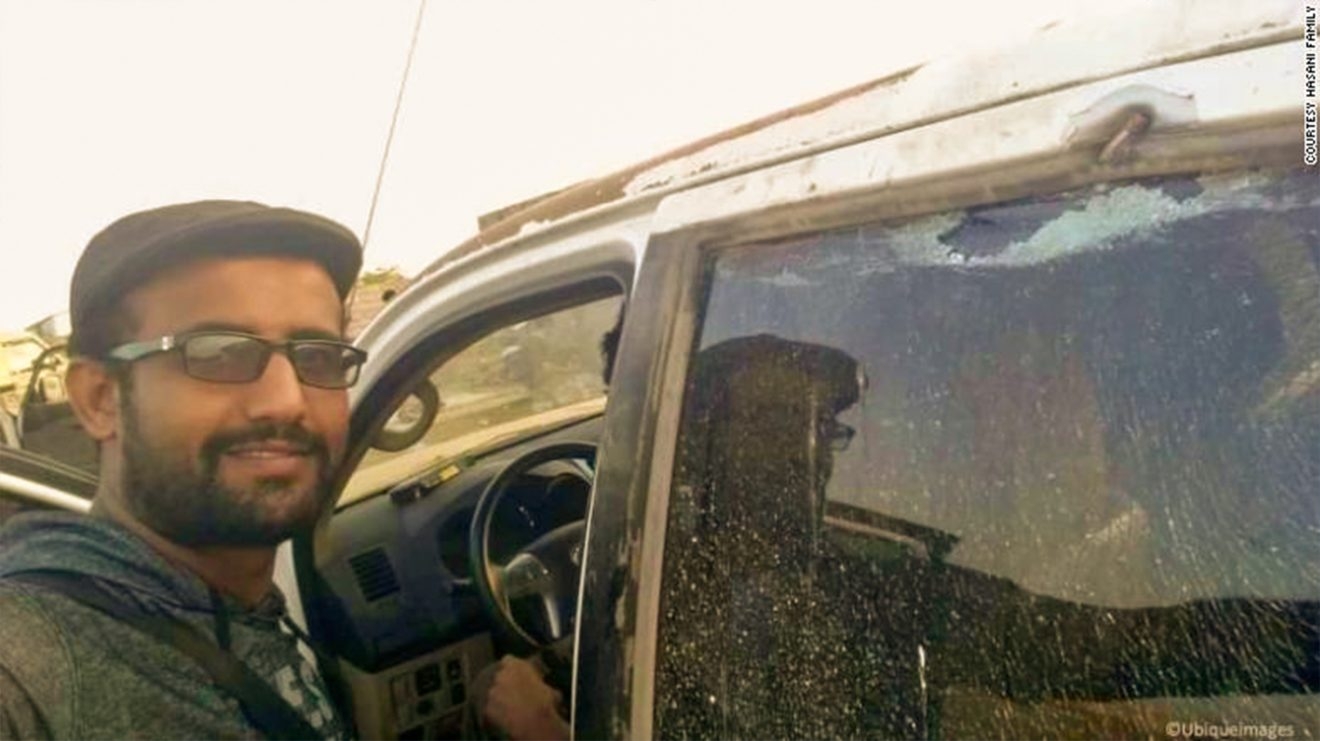
Yemen’s UAE-backed Southern Transitional Council (STC) forces have detained and tortured Yemeni journalist Adel al-Hasani, forcing him to confess to spying for foreign countries through his work, Human Rights Watch has said.
Hasani, an Aden-based investigative journalist, producer and fixer for international journalists, was detained on 17 September 2020 when STC forces stopped his car at al-Alam checkpoint at the eastern entrance to the southern Aden governorate, HRW said on Monday, quoting a source.
The 35-year-old journalist was then kept for a few hours in an interrogation room at Dofus checkpoint in Abyan governorate, where STC forces tied him up and beat him with rifle butts, before he was transferred to an unknown location, where he was also assaulted.
According to the source, the interrogators in Abyan wore uniforms of a pro-STC force known as the Support and Reinforcement Brigades.
Hasani was transferred several times during the course of his detention, including to Bir Ahmed, an informal detention facility in a military camp under STC control in Aden’s al-Buraika district. There he was kept in solitary confinement, from 19 September to 11 October, in a filthy room with no toilet or access to drinking water.
At Bir Ahmed, the source said, security personnel repeatedly threatened to kill Hasani’s family if he did not confess to spying for foreign countries and groups. He was later forced to sign a confession document, which included details of a collaboration with CNN and his work as a fixer for international journalists.
Hasani was transferred to al-Mansoura prison in Aden on 12 October, and only then was his family informed of his whereabouts. Hasani’s wife is only allowed occasional visits to the prison.
The STC did not respond to a request for comment from MEE by the time of publication.
Targeting journalists
Since the start of the war in Yemen in 2015, Hasani has worked with international media outlets, including the BBC, CNN and Vice.
He was listed as a producer for a 2019 CNN report revealing that Saudi Arabia and the UAE had transferred weapons, bought from the United States, to al-Qaeda-linked forces, Salafi forces and other armed groups in Yemen, in violation of agreements with Washington.
Hasani’s lawyer said there was a lack of evidence in linking his client to the crime he is being accused of. He added that the criminal prosecutor’s office had told him that it had received orders from the STC and UAE officials not to release the journalist.
“The Southern Transitional Council’s deplorable treatment of Adel al-Hasani further stains the appalling rights record of the STC and their UAE backers,” said Afrah Nasser, Yemen researcher at HRW.
The STC, a secessionist group, controls much of the country’s south and has repeatedly clashed with nominal ally the Saudi-backed government.
UAE’s ongoing role in Yemen
The source said he believed the reason behind Hasani’s arrest was an interview he had conducted with UAE intelligence officer Saeed al-Mahiri at the Saudi-led coalition's headquarters in Aden in late 2018. During the interview, he had requested background information about Abu Dhabi’s involvement in Yemen for the CNN story.
After the meeting, the source said that Hasani received threatening text messages from Mahiri, warning him to stop disclosing details about the UAE in Yemen. The source claimed that the UAE had ordered the STC to detain the journalist because it was not pleased with the CNN report.
Yemeni media reports accused Mahiri in 2018 of leading assassination, forced disappearance and imprisonment campaigns, among other abuses. These included running secret prisons in the south, in his position as the military leader of the UAE forces in southern Yemen.
The UAE announced in October 2019 that it had ended its military involvement in Yemen, but experts say the reality on the ground says otherwise. Abu Dhabi stands accused of still being heavily active in the war through its strategic islands, air and seaports, military bases and militias.
Justin Russell, head of the New York Center for Foreign Policy Affairs (NYCFPA) think-tank, told Middle East Eye on Monday that his organisation had documented continued Emirati involvement in Yemen.
"The UAE, either in the spotlight or under the radar, continues to be an aggressor in the region," Russell said.
"The UAE's withdrawal announcement drew international attention away and basically took the rest of the world off the scent of what they are actually doing in the region… But in our research, there is still funding and other battlefield support from the UAE in Yemen on a regular basis," he continued.
The UN Group of Eminent Experts on Yemen said in a report published in September 2020 that the UAE was continuing its air operations and support for local Yemeni forces in the country’s south.
Middle East Eye delivers independent and unrivalled coverage and analysis of the Middle East, North Africa and beyond. To learn more about republishing this content and the associated fees, please fill out this form. More about MEE can be found here.


